Women With GRITT: Maria Thattil On How She Prepared For Miss Universe, Speaking Out About Racism & What’s Next
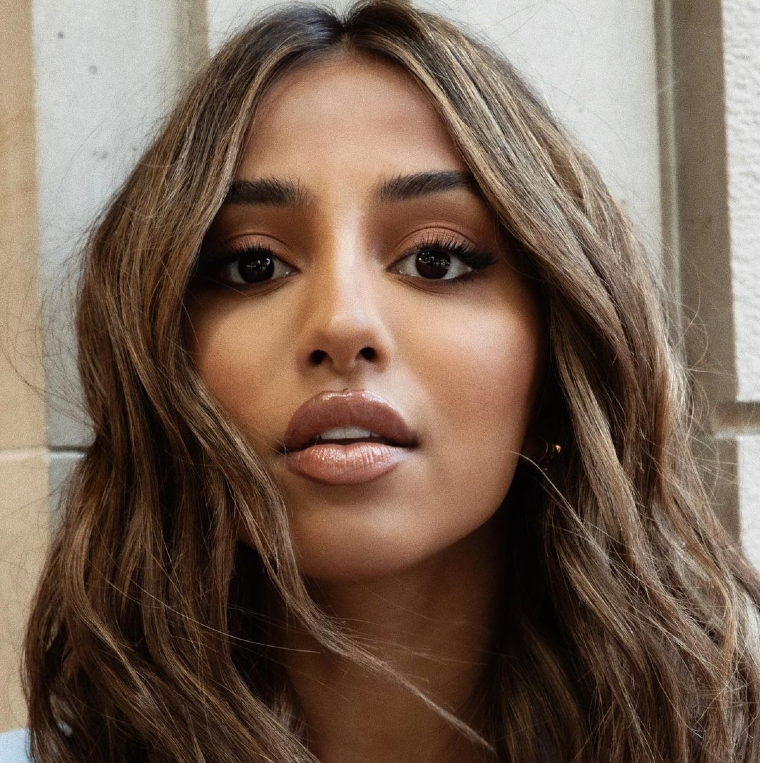
“My voice is a lot more impactful when I can take what happened to me and use it as a teachable moment.”
Welcome to Women with GRITT: a series where we interview the resilient, hardworking women who have kicked in the glass ceiling and inspire us to do the same.
Maria Thattil became a household name when she was crowned Miss Australia in 2020. The daughter of Indian immigrants, she was born and raised in Melbourne and studied in psychology and management before deciding to try her hand at the Miss Universe pageant. What inspired her to make the change? Seeing Indian-born Priya Serrao take the title of Miss Australia in 2019. “I became aware of Miss Universe Australia as a viable platform, to share my messages and promote diversity and inclusivity, because the woman who won in 2019, was an Indian-Australian lawyer. That completely shattered any misconceptions that I had around the space.”
Prior to this, Thattil had never even entertained the idea of modelling due to her stature (she’s five ft three) but she’d also never seen a woman who looks like her rise to such great heights in the industry “I didn’t look like the previous Miss Universe Australias because they were largely Caucasian and had Anglo-Celtic features, so I just wrote myself out,” she explains. “I was interested in modeling and interested in things like that but I knew that I wanted to be so much more than a model, I wanted to be able to have a voice.”
True to her word, ever since she won Miss Australia and went on to be placed in the top 10 at Miss Universe, she’s used her platform for good—to fight for equality, diversity and to use her voice to make a change.

Firstly, we’d love to learn more about you! Where did you grow up and what are some of your fondest childhood memories you have of your upbringing?
I was born and raised in Melbourne. When I think of my childhood, I have so many memories that are abundant with people and love and laughter and food and culture. My parents immigrated to Australia from India in the very late 80s, early 90s. They immigrated with all my mum’s brothers and sisters, so I grew up surrounded by cousins and it was like having nine or 10 other brothers and sisters! Every weekend, there was a family party, and there was no reason for it. It wasn’t initiated by a birthday or anything. We were just used to celebrating life and having family around you all the time. I think I was very lucky that very early on, I got a sense of the positives of it taking a village to raise a child. But my childhood was interesting, because what I experienced within the four walls of my home was very different to what I experienced outside of the home context. There was such a stark contrast between Western social norms and culture, and the culture that my parents brought over with them. They struggled to let go in order to assimilate to Australian culture, so I was very aware very early on in childhood that we were different.
What was that difference between home and school life like for you as a child?
In South Asian culture values are very, very important; respecting your elders and being reverent and obedient. There is a huge emphasis on that in South Asian culture. I remember growing up, my parents taught us to address any adults, no matter who they were, as either uncle or aunty. I remember, if I met a stranger, or in school, like a teacher, I would address them in that way, and other kids would say, ‘That’s weird!’ It was little things like that. I noticed, why do we eat foods that people would perceive as different or smell different? Other kids would go to school with sandwiches and I would just want the same thing.
Do you feel those respectful values and those experiences have shaped who you are today and even contributed to your success?
For the longest time, and I would really say up until a couple of years ago, I really struggled with my sense of cultural identity. It always felt like it was these two seemingly disparate cultures, and I had to choose between them. But as a woman, I’ve now embraced it as a hybrid cultural identity—I’m not one or the other, I am a product of both. That is the reality for many third culture kids who are born and raised in a different country to where their parents are from. When I think of the differences that I was raised with, as much as I resisted them when I was growing up, I see the beauty and value in them now and I think it’s made me the woman that I am.
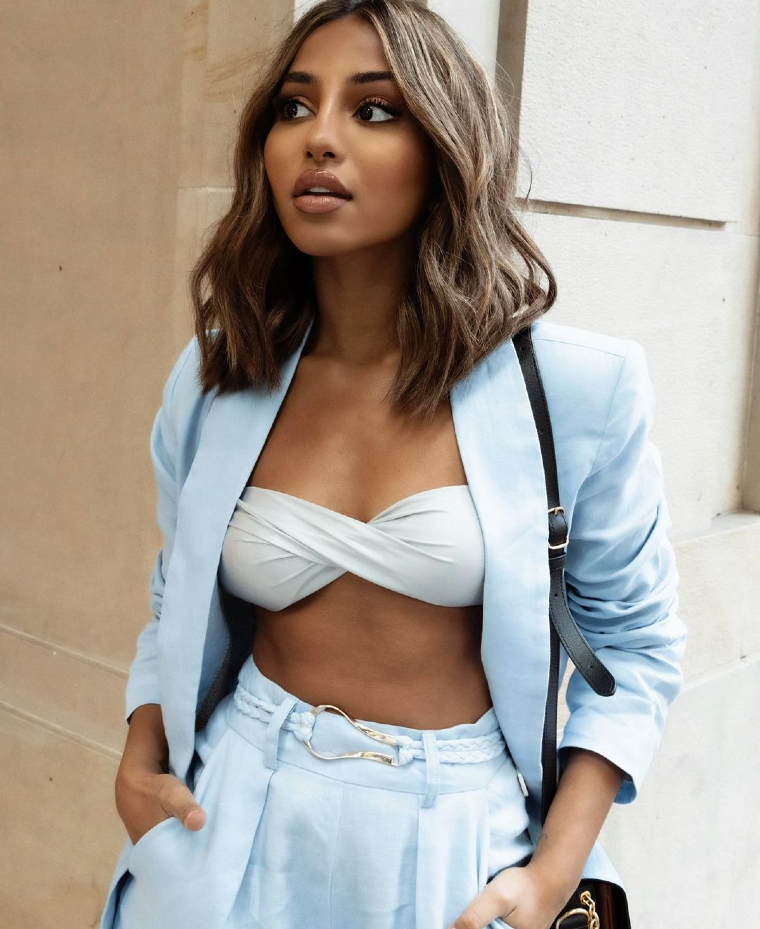
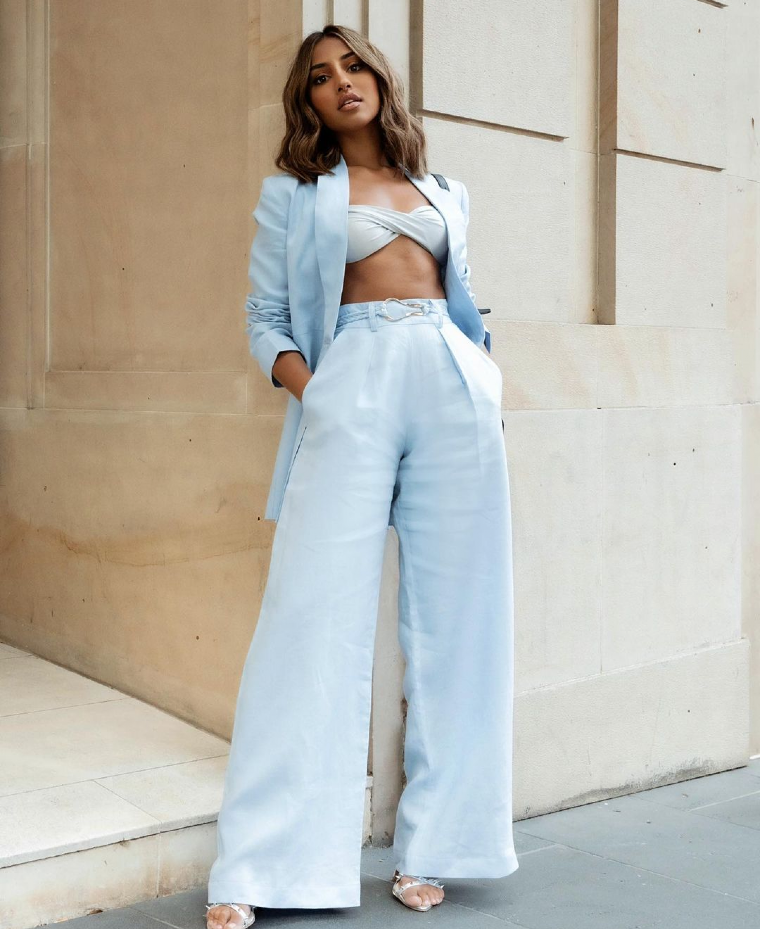
You have degrees in psychology and management. How did you transition from that to becoming Miss Universe?!
I actually quit my corporate job back in November, once I became Miss Universe Australia. At the time, I was working in my corporate career full time and I was calling all my work on social media and digital a reverse side hustle. I was afraid to acknowledge it as what I wanted to do, but since quitting, I’m a writer, speaker and a creative, so I work full time in creative media. I do a little bit of modelling, I do a lot of opinion writing, and speaking engagements. I would love to have a book under my belt, or take my writing to the next level, and also utilise my degrees to start coaching people for confidence and mindfulness, in their careers and in their lives.
How do you prepare for something like Miss Universe?
When I became Miss Australia, I realised how different it was—some countries almost see it as their national sport. There’s people that coach these women for years to get them ready. It’s insane. It’s very, very serious, because it is a profound opportunity, right? They train you in walking, they train you to talk, they train you on the way you dress—on everything. My training was self initiated. I also leveraged social media as I viewed it as the way to prepare to show up as the Miss Universe that I know I would be. I wanted them to see, this is what they would get with me if they picked me. The only thing I did need coaching on was my walk, because I’d never walked the runway or anything before and my first time on stage was the competition. That was pretty scary! It was almost like a baptism by fire.
You could probably talk all day about that experience but what would you say was the greatest lesson you learned from the competition?
I ended up placing in the top 10 in the world and the lesson that I learned was how important resilience and self belief are when you’re doing anything. Just because something hasn’t been done before, it doesn’t mean it can’t be done. In the lead up, I had a lot of racism, and a lot of criticism, based on the fact that I was a woman of colour representing Australia and also based on the fact that I’m 5 ft 3. It was worldwide discourse, it was from some people in Australia, and there was some racist commentary in the media. When articles would be published, there were people that would say, ‘That’s not our representative. That’s maybe Miss India.’ It was very disappointing that that was their response. But for every one comment like that there were maybe 100 positive ones, so it was really about perspective.
I’m really sorry that happened to you.
That’s okay. Internationally, people were surprised and I think that’s why you need to see people who look different, because people have this idea of Australia based on what is over-represented. The fact that I was able to persevere through that, it shows people, the only person you should listen to is yourself. If not you, then who?
You’re so positive, and, I don’t want to pretend your outlook hasn’t been shaped because you’ve had to deal with that your whole life as a woman of colour. But how do you stay so positive?
Thank you for acknowledging that because it has been a journey. wasn’t always positive about it because the racism did lead me to self reject, for a long time. It’s why I resisted a lot of my South Asian identity for the longest time before I had a bit of a turning point. I do read a lot of books on personal development, mindfulness and philosophy. Reading about these theories and ways of living have definitely shaped my perspective on how to approach living with racism as a person of colour. I also realised how profoundly impactful my voice can be, if I’m not just taking and internalising the anger and hatred spewed at me for my race, and then putting it back out in an angry way or telling people why they’re wrong. Fighting anger with anger is not fruitful. My voice is a lot more impactful when I can take what happened to me and use it as a teachable moment. I can speak to people with compassion and try to understand why people think the way they think. Now that I have done that work, I think I have the strength to speak on the matter with compassion and with the intention of educating instead of adding more to a world that is already tough enough to exist in.
I couldn’t agree more. To end the interview, I have to ask you about beauty! What’s your go-to makeup look for work?
I guess with makeup, I’ll make an overarching statement and say I think beauty is in our differences. What may be beautiful to one person is different to somebody else and that’s okay. I always start with a good serum because I like a nice, hydrated base and that doesn’t come from makeup, that comes from your skincare. I love the Olay Super Serums, they’re incredible. My all-time favourite foundation that I will wear whether we’re going out for lunch, or doing a photoshoot is the Clinique Even Better Clinical™ Serum Foundation. It’s the best foundation I’ve ever used. It just looks like airbrushed makeup when it’s on your skin. I love a good concealer. The L’Oreal Infallible More Than Concealer is an affordable but incredibly effective buy. Then I finish with a bit of bronzer. My favourite mascara is the L’Oreal Lash Paradise Mascara. You can’t go wrong with the Fenty Beauty Gloss Bomb Universal Lip Luminizer—the tones are very earthy, natural and sun-kissed and they just bring out my natural melanin, so I love that.
Firstly, we’d love to learn more about you! Where did you grow up and what are some of your fondest childhood memories you have of your upbringing?
I was born and raised in Melbourne. When I think of my childhood, I have so many memories that are abundant with people and love and laughter and food and culture. My parents immigrated to Australia from India in the very late 80s, early 90s. They immigrated with all my mum’s brothers and sisters, so I grew up surrounded by cousins and it was like having nine or 10 other brothers and sisters! Every weekend, there was a family party, and there was no reason for it. It wasn’t initiated by a birthday or anything. We were just used to celebrating life and having family around you all the time. I think I was very lucky that very early on, I got a sense of the positives of it taking a village to raise a child. But my childhood was interesting, because what I experienced within the four walls of my home was very different to what I experienced outside of the home context. There was such a stark contrast between Western social norms and culture, and the culture that my parents brought over with them. They struggled to let go in order to assimilate to Australian culture, so I was very aware very early on in childhood that we were different.
What was that difference between home and school life like for you as a child?
In South Asian culture values are very, very important; respecting your elders and being reverent and obedient. There is a huge emphasis on that in South Asian culture. I remember growing up, my parents taught us to address any adults, no matter who they were, as either uncle or aunty. I remember, if I met a stranger, or in school, like a teacher, I would address them in that way, and other kids would say, ‘That’s weird!’ It was little things like that. I noticed, why do we eat foods that people would perceive as different or smell different? Other kids would go to school with sandwiches and I would just want the same thing.
Do you feel those respectful values and those experiences have shaped who you are today and even contributed to your success?
For the longest time, and I would really say up until a couple of years ago, I really struggled with my sense of cultural identity. It always felt like it was these two seemingly disparate cultures, and I had to choose between them. But as a woman, I’ve now embraced it as a hybrid cultural identity—I’m not one or the other, I am a product of both. That is the reality for many third culture kids who are born and raised in a different country to where their parents are from. When I think of the differences that I was raised with, as much as I resisted them when I was growing up, I see the beauty and value in them now and I think it’s made me the woman that I am.


You have degrees in psychology and management. How did you transition from that to becoming Miss Universe?!
I actually quit my corporate job back in November, once I became Miss Universe Australia. At the time, I was working in my corporate career full time and I was calling all my work on social media and digital a reverse side hustle. I was afraid to acknowledge it as what I wanted to do, but since quitting, I’m a writer, speaker and a creative, so I work full time in creative media. I do a little bit of modelling, I do a lot of opinion writing, and speaking engagements. I would love to have a book under my belt, or take my writing to the next level, and also utilise my degrees to start coaching people for confidence and mindfulness, in their careers and in their lives.
How do you prepare for something like Miss Universe?
When I became Miss Australia, I realised how different it was—some countries almost see it as their national sport. There’s people that coach these women for years to get them ready. It’s insane. It’s very, very serious, because it is a profound opportunity, right? They train you in walking, they train you to talk, they train you on the way you dress—on everything. My training was self initiated. I also leveraged social media as I viewed it as the way to prepare to show up as the Miss Universe that I know I would be. I wanted them to see, this is what they would get with me if they picked me. The only thing I did need coaching on was my walk, because I’d never walked the runway or anything before and my first time on stage was the competition. That was pretty scary! It was almost like a baptism by fire.
You could probably talk all day about that experience but what would you say was the greatest lesson you learned from the competition?
I ended up placing in the top 10 in the world and the lesson that I learned was how important resilience and self belief are when you’re doing anything. Just because something hasn’t been done before, it doesn’t mean it can’t be done. In the lead up, I had a lot of racism, and a lot of criticism, based on the fact that I was a woman of colour representing Australia and also based on the fact that I’m 5 ft 3. It was worldwide discourse, it was from some people in Australia, and there was some racist commentary in the media. When articles would be published, there were people that would say, ‘That’s not our representative. That’s maybe Miss India.’ It was very disappointing that that was their response. But for every one comment like that there were maybe 100 positive ones, so it was really about perspective.
I’m really sorry that happened to you.
That’s okay. Internationally, people were surprised and I think that’s why you need to see people who look different, because people have this idea of Australia based on what is over-represented. The fact that I was able to persevere through that, it shows people, the only person you should listen to is yourself. If not you, then who?
You’re so positive, and, I don’t want to pretend your outlook hasn’t been shaped because you’ve had to deal with that your whole life as a woman of colour. But how do you stay so positive?
Thank you for acknowledging that because it has been a journey. wasn’t always positive about it because the racism did lead me to self reject, for a long time. It’s why I resisted a lot of my South Asian identity for the longest time before I had a bit of a turning point. I do read a lot of books on personal development, mindfulness and philosophy. Reading about these theories and ways of living have definitely shaped my perspective on how to approach living with racism as a person of colour. I also realised how profoundly impactful my voice can be, if I’m not just taking and internalising the anger and hatred spewed at me for my race, and then putting it back out in an angry way or telling people why they’re wrong. Fighting anger with anger is not fruitful. My voice is a lot more impactful when I can take what happened to me and use it as a teachable moment. I can speak to people with compassion and try to understand why people think the way they think. Now that I have done that work, I think I have the strength to speak on the matter with compassion and with the intention of educating instead of adding more to a world that is already tough enough to exist in.
I couldn’t agree more. To end the interview, I have to ask you about beauty! What’s your go-to makeup look for work?
I guess with makeup, I’ll make an overarching statement and say I think beauty is in our differences. What may be beautiful to one person is different to somebody else and that’s okay. I always start with a good serum because I like a nice, hydrated base and that doesn’t come from makeup, that comes from your skincare. I love the Olay Super Serums, they’re incredible. My all-time favourite foundation that I will wear whether we’re going out for lunch, or doing a photoshoot is the Clinique Even Better Clinical™ Serum Foundation. It’s the best foundation I’ve ever used. It just looks like airbrushed makeup when it’s on your skin. I love a good concealer. The L’Oreal Infallible More Than Concealer is an affordable but incredibly effective buy. Then I finish with a bit of bronzer. My favourite mascara is the L’Oreal Lash Paradise Mascara. You can’t go wrong with the Fenty Beauty Gloss Bomb Universal Lip Luminizer—the tones are very earthy, natural and sun-kissed and they just bring out my natural melanin, so I love that.

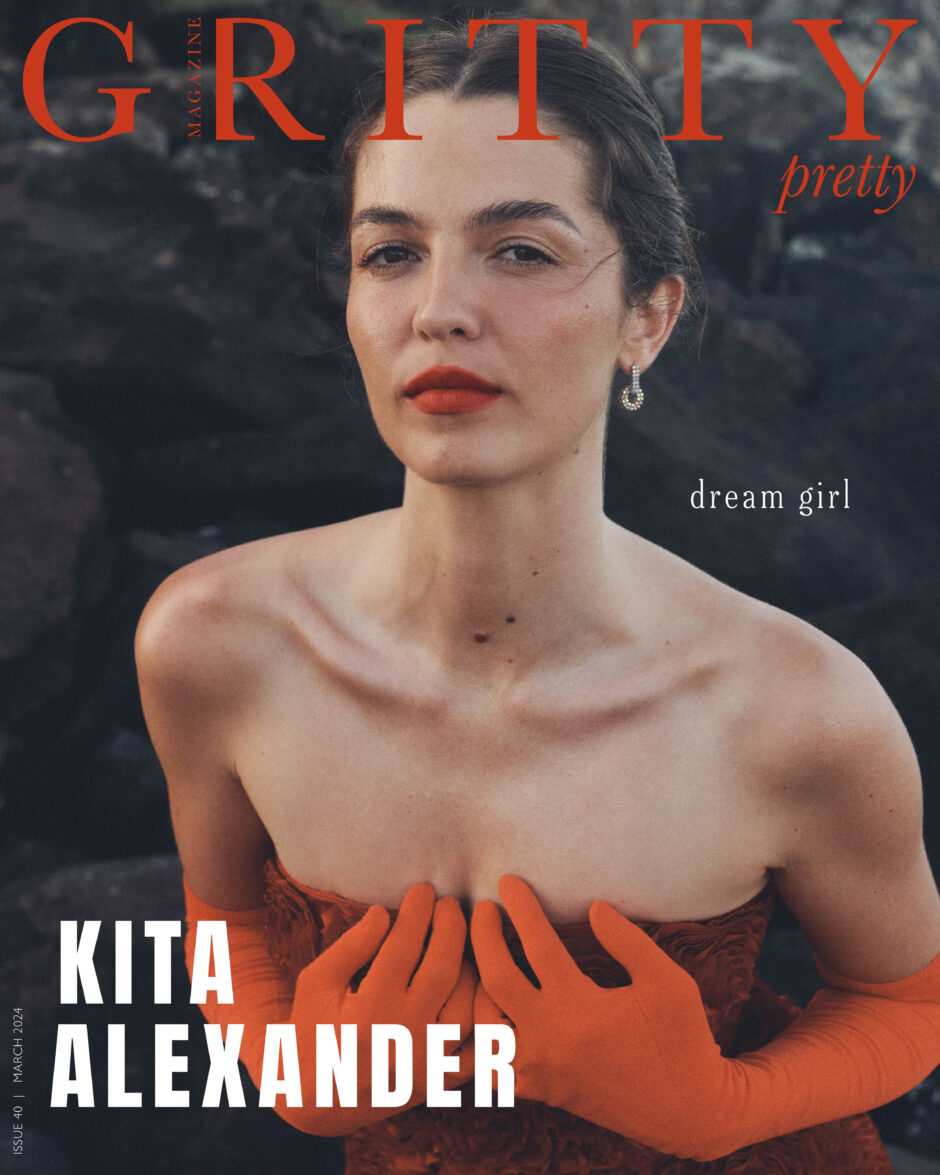
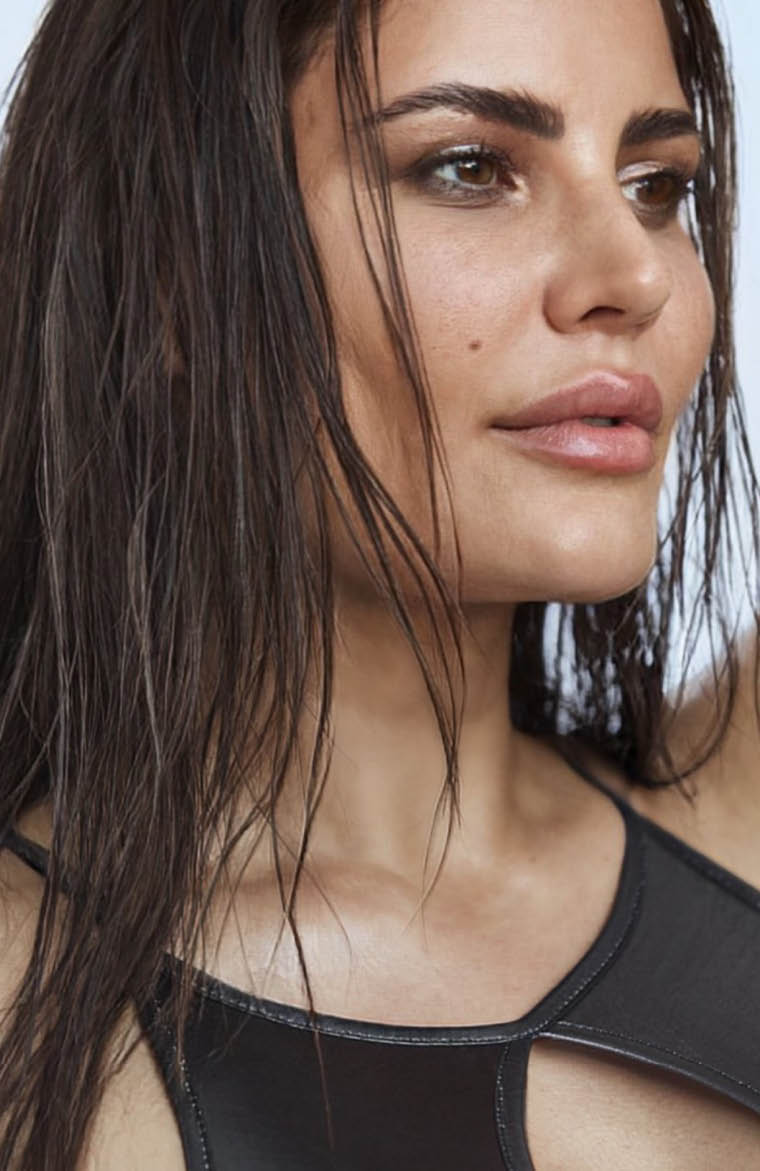
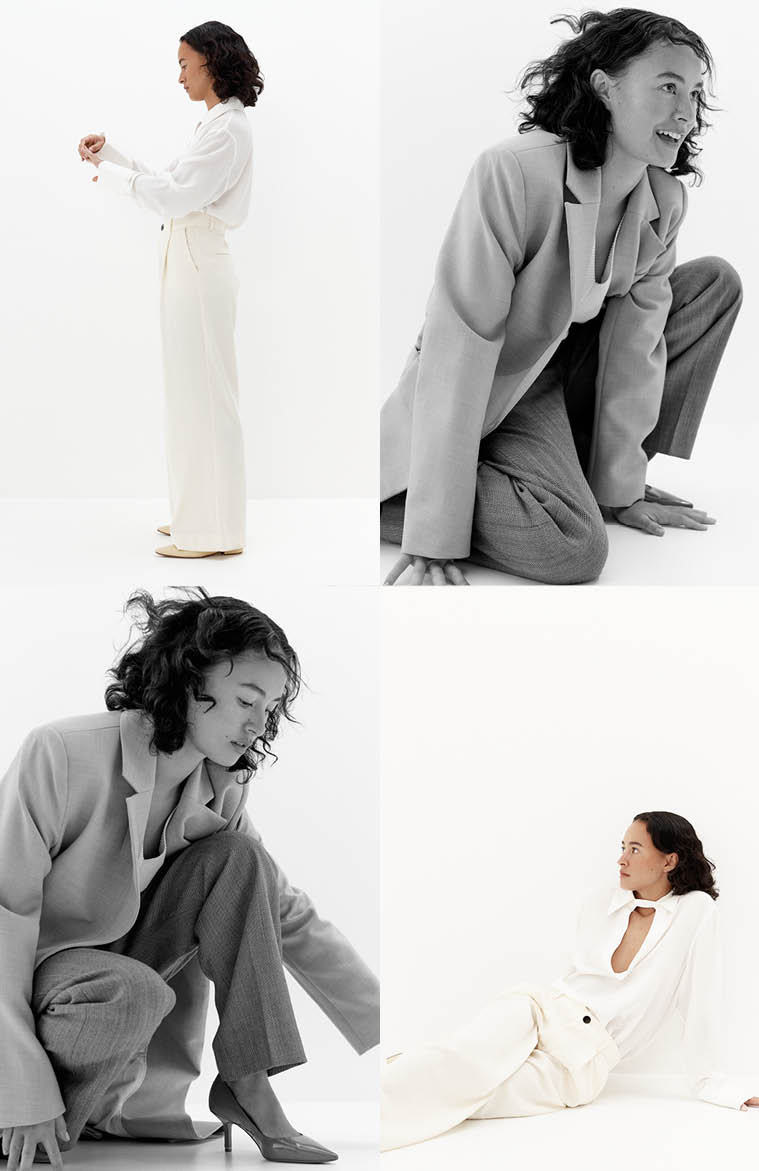
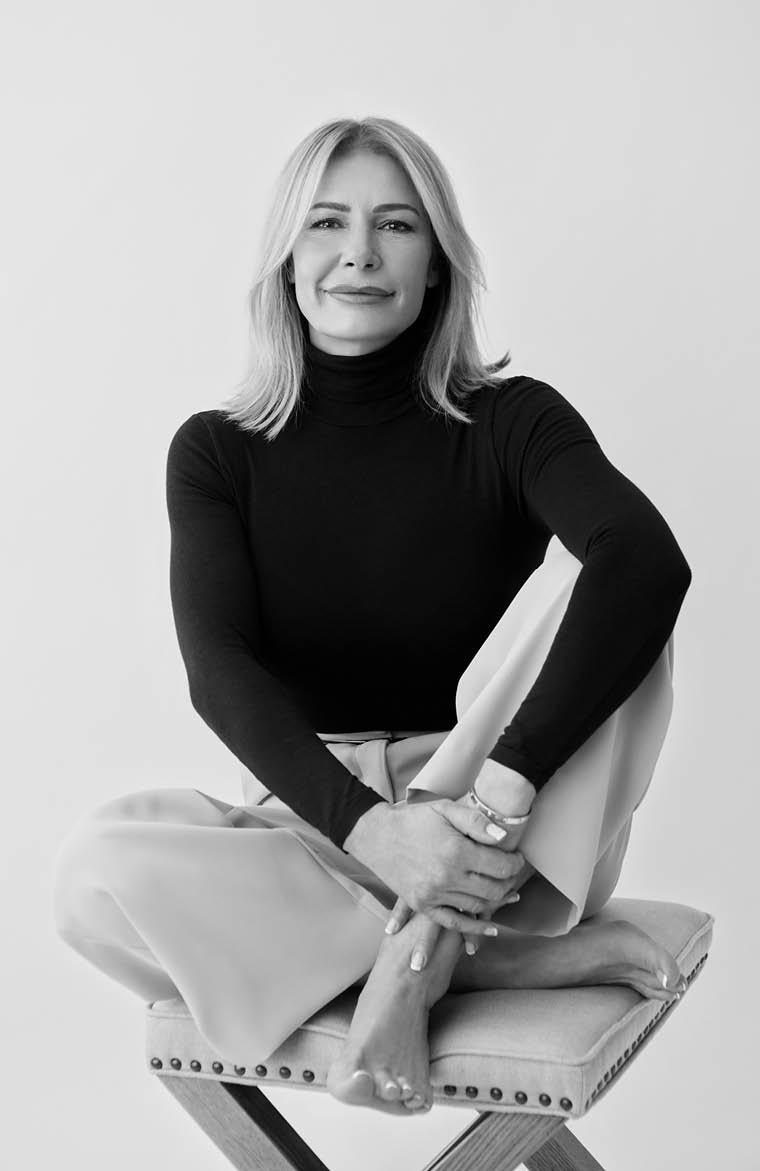
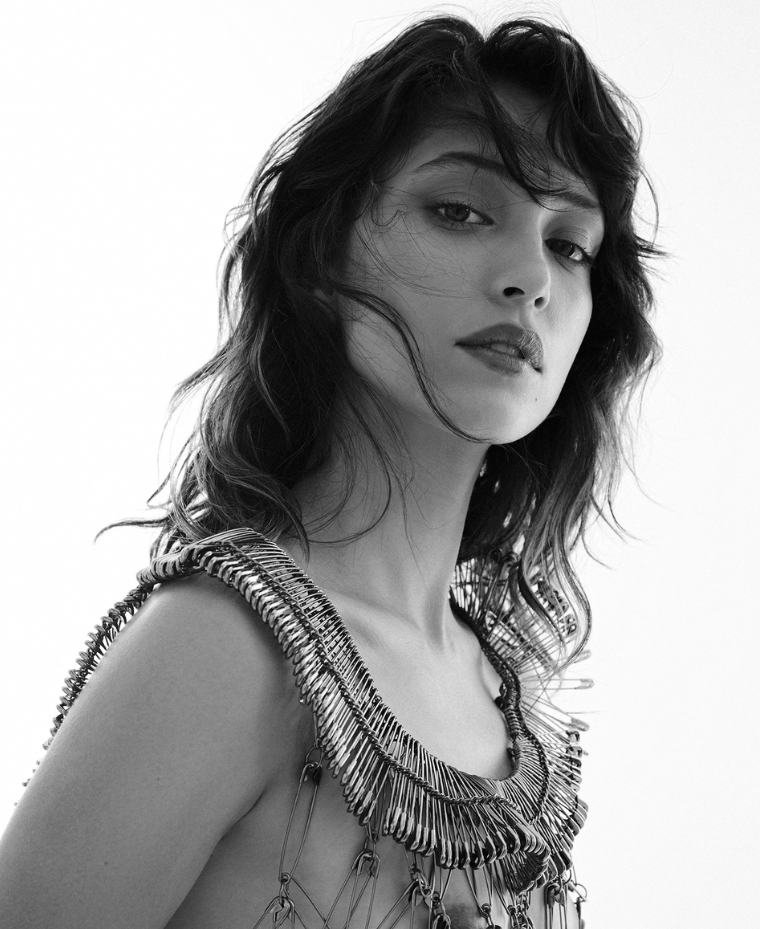
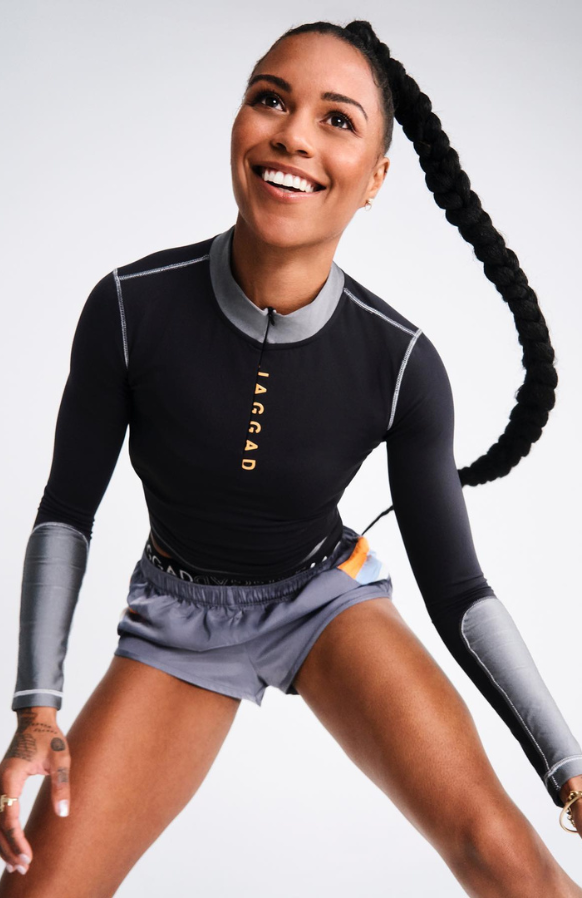

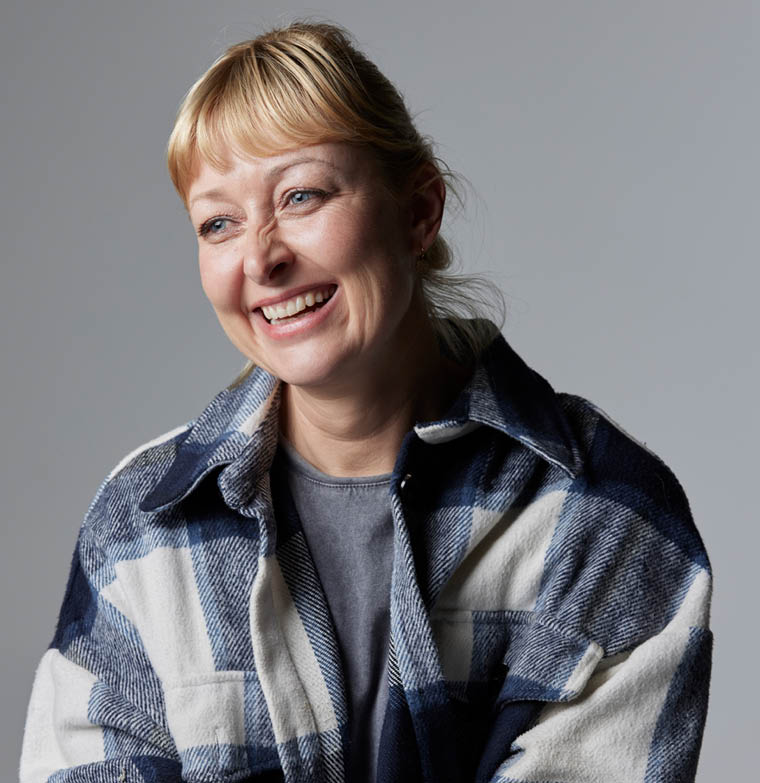
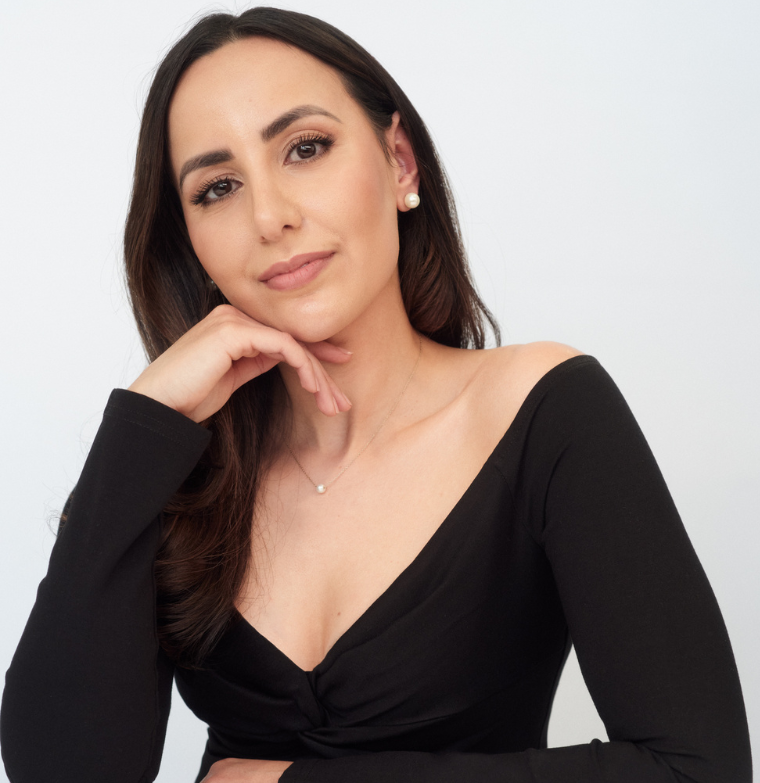
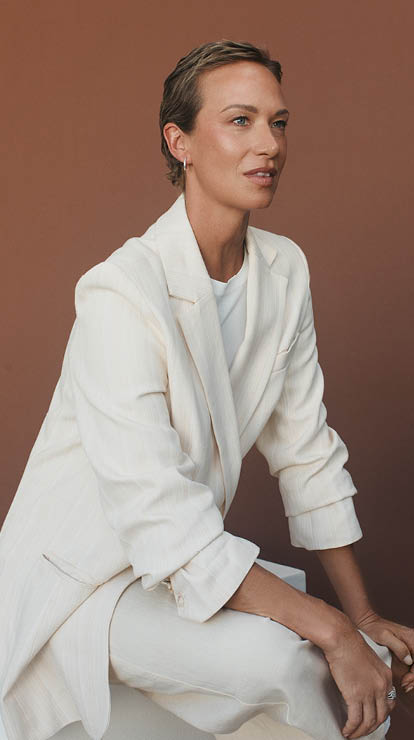

Comments